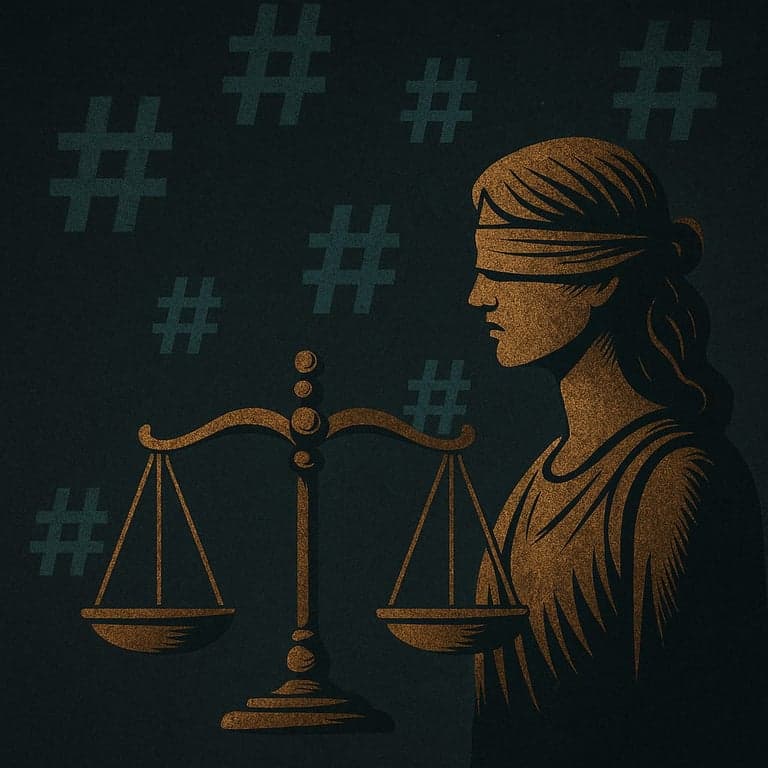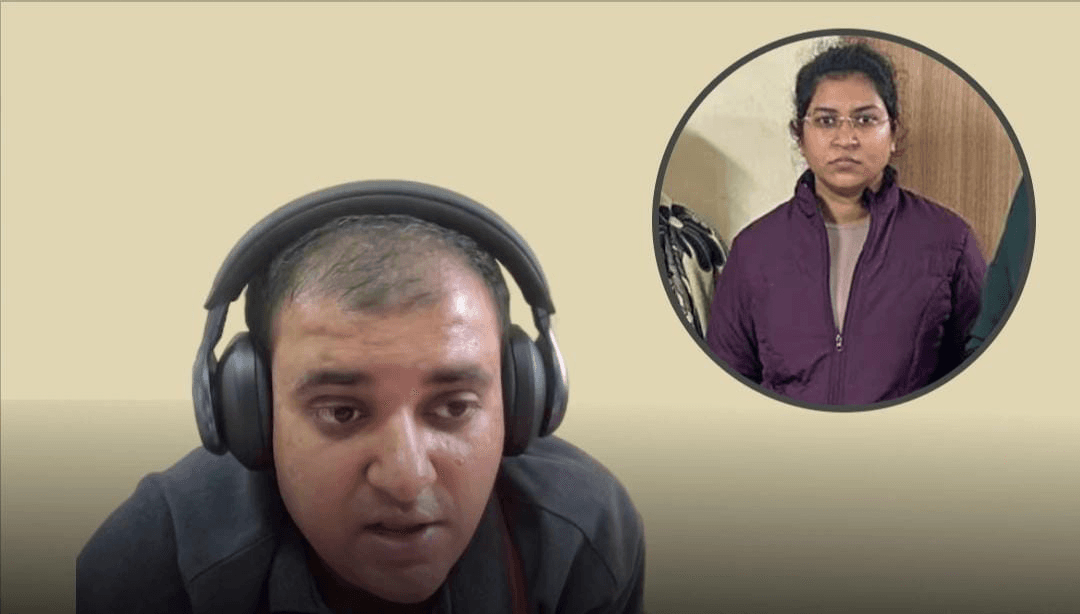
Protestors approached the Kalinga Institute of Industrial Technology (deemed university) after the tragic death of Prakriti Lamsal, a third-year B.Tech Computer Science student.
Prakriti was found dead in her hostel room on the evening of February 16, hanging from the ceiling fan. While the university has issued a statement blaming her decision on a strained relationship with her partner, her friends tell a completely different story. According to them, her ex-boyfriend Advik Srivastava, with whom she had a three-year-long relationship, had been relentlessly inflicting physical and mental torture on her.
She had reached out to the International Relations Office at the university, warning them of the harassment she was facing at the hands of Advik. But instead of acting, the authorities chose to turn a deaf ear.
And now, a leaked voice note between Prakriti and Advik has surfaced—exposing the sheer viciousness of his abuse. In the recording, Advik can be heard hurling the most degrading slurs at her, forcing her to call herself a prostitute, and subjecting her to a barrage of verbal abuse. The absolute mental and emotional breakdown she suffered at his hands is undeniable. And yet, the university, instead of protecting its own student, protected the abuser by staying silent.
The University's Authoritarian Response
When furious protestors—including Nepali nationals—demanded accountability, the university responded not with dialogue, not with justice, but with brute force. Instead of addressing the issue, they forcefully evicted Nepali students, loading them onto hostel buses and dumping them at Cuttack Railway Station without any travel arrangements. Those who refused to leave were met with violence.
This is the reality: Rather than acknowledging their gross negligence, the university chose to silence and exile those who dared to speak up.
But let’s ask the real questions:
What about the voices of the evicted students?
What about their education, their safety, their future?
What about Prakriti’s justice?
Will she be just another name lost in the files of a judiciary that never acted?
A Pattern of Suppression
As of the writing of this article, yet another identical case has emerged.
In RG Kar Medical College, Ivy Prasad, a 20-year-old student, was found hanging in her quarters at Kamarhati ESI Hospital. No suicide note was found. The reason? Depression. And just like clockwork, there is no mainstream media coverage, no official postmortem details, and no awareness being spread.
This is a pattern—a calculated mechanism of silence. Every time an institution fails, they bury their failures instead of fixing them.
The New Delhi Railway Station Stampede—Another Buried Tragedy
On the night of February 15, at around 9:30 PM, a stampede occurred at New Delhi Railway Station. And precisely as expected, the government moved swiftly—not to help, but to suppress.
The Lt. Governor originally confirmed deaths in a tweet—only to edit it later, softening the language to an “unfortunate incident.”
Railway Minister Ashwini Vaishnaw took a whole two hours to even acknowledge the tragedy.
Meanwhile, Northern Railways’ CPRO shamelessly denied reality, calling the incident “just a rumor” in a statement to ANI.
We’ve seen this before. Maha Kumbh stampede—hushed up. The death toll? Unknown.
Living in a Facade
This is the India we live in.
A country where YouTube controversies make prime-time news, while real tragedies—those that expose the failures of the system—are buried.
By the time I finish writing this, one thing is clear:
Suppression is not just a reaction. It is a policy. A strategy. A way to cover up the rot in our governance.
And every time we accept it, every time we move on without demanding answers, we let them win.
Written by Udhav Kumar


